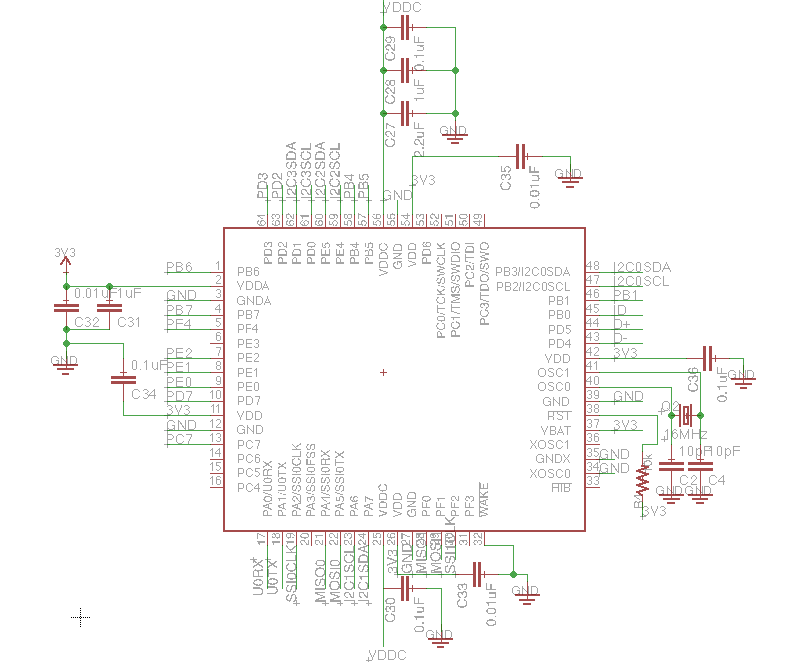Hi,
I'm a college student working on a project using TM4C123GH6PM. I built the schematic in EAGLE based on the datasheet for evaluation board but I still have some questions.
In the design guidelines for TM4C123GH6PM, it says:
Decoupling capacitors are typically 0.1 μF in value and should be accompanied by a bulk capacitor near the microcontroller. The combined VDD and VDDA bulk capacitance of the microcontroller is typically between 2 μF and 22 μF.
I don't really know what it means by "bulk capacitance of the microcontroller is typically between 2 μF and 22 μF" cause in the current schematic, the capacitance is smaller than 2 μF. And also, 2 of the capacitors are 0.01μF instead of 0.1 μF.
Does my shcematic look ok as the basic set up? I'm pretty new to microcontrollers so I'm not very sure.
Thank you guys so much!


